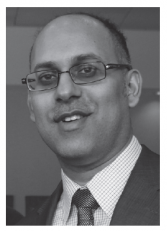Why Investing Is So Hard: We Donít Practice It Enough
 A lot of people I’ve come across are very intimidated by investing. There are many elements about investing that strike fear into the hearts of people. The fear of math and all those formulas, ratios, and calculations. The fear of losing all your savings. The fear and trepidation of clicking that button on your computer screen to buy or sell a stock. Some people can’t even look. I found the best way to overcome the fears of investing and just about any skill or competency is to educate yourself and to frequently engage in the activity and behaviour to gain experience and confidence. This is consistent with Behavioural Economist and Nobel Laureate Richard Thaler’s belief that “…in order to learn from experience, two ingredients are necessary, frequent practice and immediate feedback”.
A lot of people I’ve come across are very intimidated by investing. There are many elements about investing that strike fear into the hearts of people. The fear of math and all those formulas, ratios, and calculations. The fear of losing all your savings. The fear and trepidation of clicking that button on your computer screen to buy or sell a stock. Some people can’t even look. I found the best way to overcome the fears of investing and just about any skill or competency is to educate yourself and to frequently engage in the activity and behaviour to gain experience and confidence. This is consistent with Behavioural Economist and Nobel Laureate Richard Thaler’s belief that “…in order to learn from experience, two ingredients are necessary, frequent practice and immediate feedback”.
When we decide to become a nurse or a computer programmer or a financial analyst, we go to school to educate ourselves and practice the skills necessary to be proficient in that occupation. To determine how successful we are in acquiring a skill we take tests and exams that provide us with meaningful and timely feedback. We then will apply those skill sets in a job where we will repetitively practice those skills we’ve developed which ultimately make us even more experienced. Last year I started to learn karate. I would go to the dojo two or three times per week and practise katas and the Sensei would give me feedback right on the spot on how I can do the moves better. Sure enough over time, and I’m now half way to getting my black belt.
These are the usual steps when it comes to becoming proficient in a skill. We will commit the time and resources to do what’s needed often enough to learn to get it right. However when it comes to financial decisions, such as choosing a home, a mortgage, an RRSP, or stock or bond, most people don’t get much practice or opportunities to learn. And when it comes to saving for retirement, barring reincarnation, we will engage in that process or journey exactly once.
People have a hard time with investing because they simply just don’t do it enough. We don’t commit the time to learn and practice the skill. If we’re not engaged in the process, we will not receive meaningful feedback. This is ironic on two levels the first that we are living in an age where technology can give us almost instant real-time feedback on the progress of our portfolios and the investment decisions we have taken. The second being the Exchange-Traded Funds (ETF) revolution which has introduced investors to more hands-off and passive investment strategies that encourage us to set-it and forget-it and ironically detach from the investing process. With the proliferation of passive investment strategies and automated portfolio management services, I fear that more people in the future will be even less engaged in the process of investing and as a result will not develop the financial literacy and self-awareness of behavioural biases that can cloud our decision making. Passive investing is a powerful and effective strategy but it can be more powerful and rewarding when we are more engaged in the process.
When we do engage in a program with a financial advisor, often our interaction takes place at the start and maybe if we’re lucky once a year, which to me is not enough when we are talking about something as important as our personal finances. That meaningful feedback loop that can keep us engaged is few and far between.
A lack of practice leads to a lack of commitment that provides very few opportunities for meaningful feedback. As a result there is a greater probability that we will not develop the skillset, literacy, or self-awareness to make successful investment decisions.
My personal investing journey has taken hundreds of hours of formal training and thousands of hours of practicing, reading, reviewing, and analyzing thousands of companies and portfolios. It has given me the proficiency, confidence to make successful decisions and to help others develop their investing competencies as an investment coach.
One of the best investments we can make is in ourselves. It is important that we make the time commitment to develop our skillset for making investment decisions. We need to educate ourselves and engage in the process. We need to spend more time practicing investing and less time tip-toeing and talking around investing. By taking this approach to nurture these financial behaviours, we will gain more experience and confidence which will have a more positive outcome in the achievement of our financial goals and dreams.
Aman Raina is an Investment Coach and Founder of Sage Investors. Aman helps people who want to be achieve financial independence by teaching and engaging with them on how to make more educated and successful investment decisions so that they can achieve financial freedom with confidence. Aman can be reached through his website (www.sageinvestors.ca), Twitter (@sageinvestors) and Facebook (www.facebook.com/sageinvestors)

